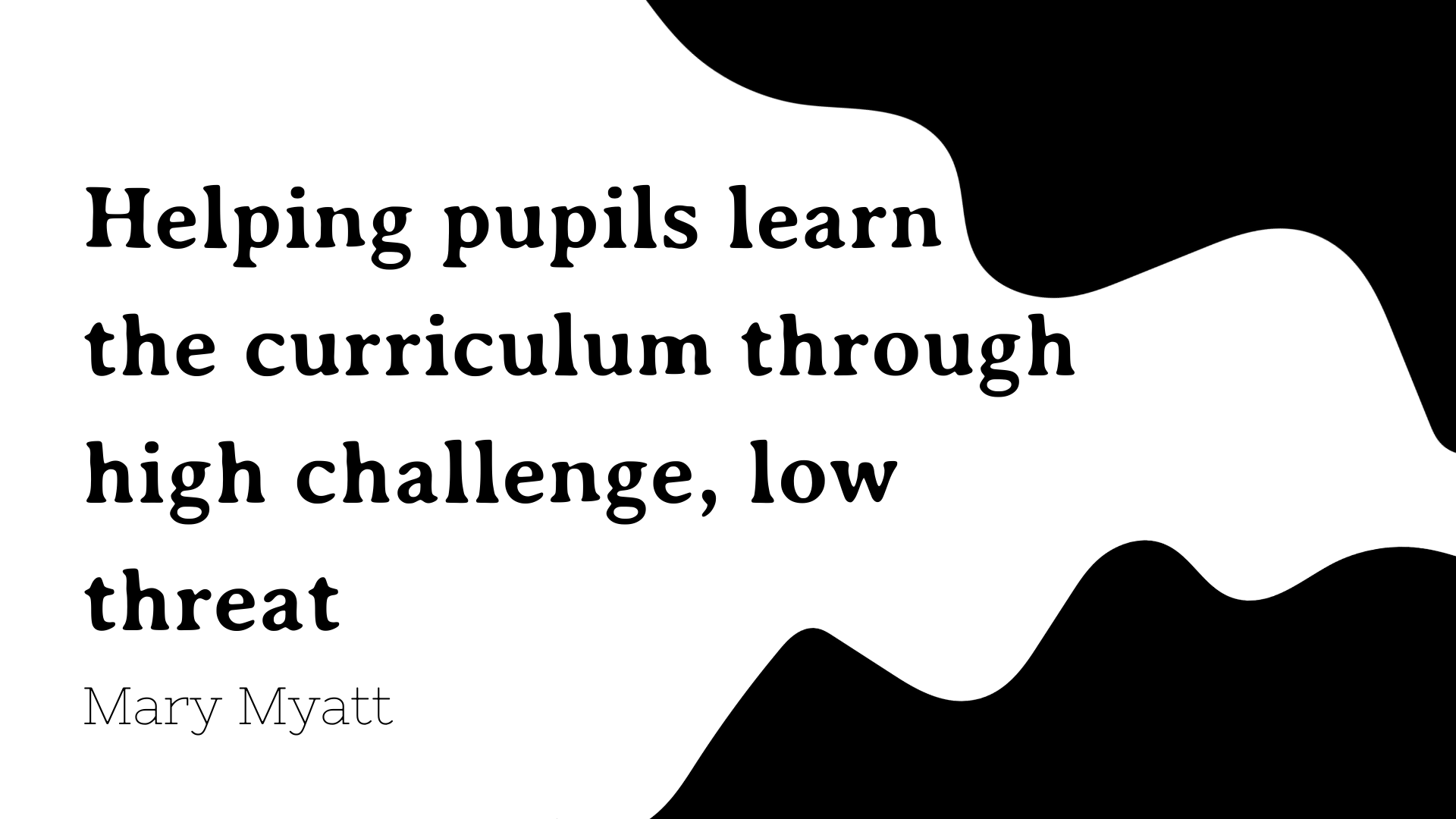Humans first, professionals second
‘When you show deep empathy toward others, their defensive energy goes down, and positive energy replaces it. That's when you can get more creative in solving problems.’
- Stephen Covey
This doesn't mean that everyone is their best friend, but it does mean that thoughtful leaders see the human being beyond the function. Men and women are more than their work. They have a life beyond the confines of the daily nine to five or whatever. They have the joys and the sadness which are the lot of every human being. While they might be put on hold when at work, they are still there in the background, bubbling away. This background doesn't need to be brought to the table but it does need to be acknowledged.
There is an excellent example of this in a Birmingham school. This head is never in his office, because he is out and about. He cares passionately about his school and everyone in it. At the start of the school day he is at the school gate an often in the street outside, urging students to come in, hurry up, get a move on. Because he doesn't want them to miss a moment of the good things that are in store for them. He sees them as humans first and students second. He cares about them as individuals, he knows that for many of them life is tough, but he makes no excuses. While they are with him and his colleagues, he makes it clear that he enjoys their company and expects them to do well.
This is a feature of many top leaders. A combination of warmth and tough love. Another head, a towering personality, exudes a warmth and a critical concern for all he works with and teaches. He cares about them as human beings first and as professionals second. I once saw this through a window as he spoke to a student. I couldn't hear the conversation but I could see the expression on his face. He addressed the student sternly, asked her a few questions, waited for her response and managed a smile in his eyes. She turned on her heels and headed back to where she was meant to be going. It was a moment of ‘extreme’ care. And it said, get cracking with what you are meant to be doing, stop bunking your lesson. You matter and your work matters. the subtext was, you are a human being and your success matters to me.
Teachers do this when they are waiting for their students to arrive. Whether they are standing at the door as they come in to the lesson, or are already inside, they convey a warmth which says I am glad you are here, I’m glad you are in my lesson, we are going to be doing some interesting things today. The temperature is different in these places. There is still the liveliness and bustle and boisterousness of a lot of young people making either way around a school, but there is a tangible sense of purpose because everyone knows they matter.
Now the teacher is able to do this because she knows that she matters. She may be lucky enough to have this sense of mattering in her personal life. She also knows that this is a place where she matters. So how does this happen? It is not always put into words but it more often felt. She knows that her headteacher values her not just for the professional skills she brings to the job but for the individual that she is. How is it possible to pull this off in a large setting? Whether it is large or small, the principles are the same. The tone is set by the leader at the top, who knows that power must be underpinned by authority. And while power comes with the role, authority comes from the consistency and humanity with which a leader goes about his daily business. Everyone matters, and that means everyone, including teaching assistants, cleaning staff, lunchtime staff and caretakers. And it goes without saying that the students and parents are included in ‘everyone’. There are a number of things that top leaders do to achieve this. First they know everyones names. How is this possible in a setting with over 1000 students and adults in it? Well they make the decision that this is important, so they make it happen. What I have noticed is that the leaders who make the effort to know everyone’s names occasionally forget them. This seems not to matter because people realise that they are making the effort.
They know the names not only of all their staff, naturally, but they also make a point of noting something about their personal lives too. They are skilled in knowing the right information to refer to. Things like: ‘How did your son’s sports trials go?’, ‘How is your daughter getting on at university?’, ’How’s the allotment going?’, ‘Are things ok?’. They are investing in the wider part of the human being, beyond their work. And the impact of this? Everyone knows that they are valued, why would they want not to do their best or work anywhere else? They are being affirmed at the deepest level and it is a deeply satisfying thing to experience.
At a classroom level, teachers invest time either at the beginning of a term or meeting a class for the first time by getting to know their students. This is done, not just to make the running of the classroom smoother but to make a deeper connection with the young people they are working with. They know that the people in front of them are more important than the piece of paper which is their lesson plan. This need not take long, but it signals an attitude about the way we do business here. It says ‘You matter, I matter and together we are going to be doing important work.’
The leaders working to the principles of humans first, professionals second are not agony aunts. They are not everyone’s best friend. They don’t think it is their duty to sort out everyone’s problems, but they are saying ‘You matter, I appreciate you and I know you will do your best work here.’
What happens is that there is a ‘bank balance’ which of goodwill. And it means that when it needs to be drawn on for tough conversations, there are always tough conversations, the underlining message is that ‘You’re ok but this aspect of your work needs addressing, so what are we doing to do about it?’
They distinguish the work from the human being. They know that it is possible to be robust but kind. But the kindness always comes first.






